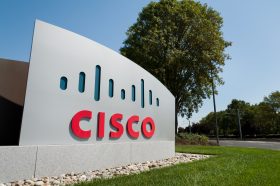Why IBM Wants HashiCorp

Major media outlets have reported that IBM is in the final stages of acquiring cloud-native software provider HashiCorp, in a deal originally quoted as $5 billion. But with HashiCorp’s stock surging more than 20% on the news (reported yesterday), it’s now worth $6.1 billion.
(UPDATE: This story has been updated to reflect recent developments and new feedback. IBM announced the purchase of HashiCorp on April 24th after market close. The purchase price was $35 per share in cash, or $6.4 billion.)
Why does it all matter, you ask? HashiCorp is considered a leading provider of tools to cloud developers and infrastructure managers. Its infrastructure as code (IaC) product, Terraform, is an industry standard. Its secrets management product, Vault, is also popular and is one of the company’s cash cows. Other products such as Consul are not as well known.
Originally launched as an open-source product, Terraform put Hashi on the map. It has been widely adopted by DevOps teams building cloud infrastructure and is considered an industry standard. Terraform is a verb. The success of Vault followed, as an alternative for cloud providers to manage “secrets,” or encryption keys and passwords.
This makes HashiCorp a valuable strategic asset for larger companies that might have larger salesforces and commercial acumen to monetize the technology, which HashiCorp has struggled with as an independent company.
Is IBM Business Purgatory?
IBM could well be the perfect home for Hashi, as the company is commonly known in the industry. IBM is regarded as the fourth or fifth largest cloud provider, depending on how you measure it, and its Red Hat division is its crown jewel of cloud management technology. Hashi would be a technical addition to Red Hat which could also be integrated with IaC tools such as Ansible, which IBM also owns (under Red Hat).
The deal could come as a sort of business purgatory. The past few years have been tumultuous ones for Hashi. After the IPO in 2021, its revenue growth slumped, it came under attack for moving products away from open-source to commercial licensing, and its founding CEO Mitchell Hashimoto left the company in December of 2023. Hashimoto and current CEO David McJannet were said to clash over business strategy. In August of last year, Hashi's move to change its licensing from open-source licenses to business commercial Business Source License (BSL) licensing fueled attacks from those that disagreed with the move as well as many in the open-source community.
The bottom line is that despite a technical leadership position, HashiCorp has struggled to monetize its user based since going public. After missing financial targets in 2023, the management concluded it was giving away too much for free. At the heart of the matter is how open-source products are commercialized.
More recently, there's been yet more controversy, as HashiCorp recently filed a cease-and-desist letter against OpenTofu, a competing open-source IaC product which was created last year as a fork of the original Terraform open-source project after Hashi's licensing changes. Hashi claims OpenTofu had illegally copied open-source code. OpenTofu strongly denies any illegal copying of the code.
Many developers in the open-source community have pushed back on Hashi's charges, saying that it’s common to see coding techniques move across products, without necessarily compromising the intellectual property (IP). This looks like it was another bad strategic and communications move by HashiCorp that appeared to backfire amongst the open-source community.
"HashiCorp struggled to execute on open-source commercialization, and eventually turned their back on their heritage with their BSL license last year,” Joe Duffy, Founder CEO of IaC company Pulumi, wrote to me in an email.
Others point out that the challenges for HashiCorp will remain, even at IBM. Chris Wade, the CTO of networking automation company Itential, points out that it has been difficult for independent companies to offer products for multicloud operations because they compete with the hyperscaler cloud providers, which provide their own tools.
“You can’t underestimate the influence of hyperscalers. The attempts to build a cloud operating model or multi cloud strategy is limited as each public cloud provider differentiates and refuse efforts at commodification,” Wade told me in an email. “We are seeing infrastructure consolidation at play as enterprises mature their cloud strategies and merge them with other infrastructure teams. This is just the beginning of consolidation and simplification in the market.”
A Changing IaC Landscape
Given Hashi's rocky past year, it seems natural that something big was going to happen. In March, Bloomberg had reported that Hashi had hired a financial advisor for the consideration of strategic options, including a potential sale.
So what does this all mean? I give you a few takeaways:
- Despite its business struggles, HashiCorp is still seen as a valuable technology asset for many large technology behemoths.
- This could be a great deal for IBM as well as HashiCorp, if handled well.
- If Hashi slips away to IBM, it's probably a loss for Cisco and Broadcom's VMware, which could both use the technology and are competitors with IBM on the software and infrastructure side.
- This may open the doors for more independent IaC products, including OpenTofu and Pulumi, which are also becoming popular.
IBM has enormous potential to integrate Terraform, as well as HashiCorp’s other products such as Vault and Consul, into its juggernaut Red Hat portfolio, which includes the OpenShift cloud management platform as well as IaC products such as Ansible.
Open-source guru Kelsey Hightower (formerly Google) suggested on X (Twitter) that IBM could reverse HashiCorp’s move last year to convert its code to BSL by putting it under Apache 2.0.
What if IBM (Red Hat) reverses HashiCorp's Business Source License (BSL) licensing decision and adopts Apache-2.0 instead.
— Kelsey Hightower (@kelseyhightower)
Meanwhile, Pulumi's Duffy sees this as a critical moment that could open the door for independent competitors.
"We are super excited at Pulumi that the cloud fundamentally reshapes the software landscape," he said.
Here are some other thoughts from Duffy:
“Hashi's go to market similarly struggled — indeed Pulumi spent a minuscule fraction compared to them this past quarter on sales/marketing, and yet grew customers by more than double, to reach over 2,500 customers (already more than half of Hashi's). They have a long road ahead to regain community trust and innovation velocity. We plan to keep doing what we do best at Pulumi: making our customers successful, and innovating and dreaming big to reimagine the future of cloud computing, always with an open source and community-centric point of view. We expect this acquisition to accelerate our already fast-growing overtake of HashiCorp on market share."
A Lesson for Frothy IPOs
Given its controversial and uneven business history, the epic Hashi story may well be a lesson in caution for hot Silicon Valley IPOs, which often hype up fashionable technology but can give companies overpriced valuations.
The grass-roots popularity of Terraform made HashiCorp a hot IPO. It went public in in 2021 and achieved a valuation of $15 billion shortly after the IPO, trading as high as $100 per share. But years later, the price collapsed and it has recently been hovering around $20, with the IBM deal speculation providing a nice spike. Now trading well below the price on the day of the IPO years before, it can be only viewed as a disappointment by investors.
The bottom line is that being purchased by IBM might be the best move Hashi could hope for, and it would provide some interesting strategic changes to the cloud management and IaC landscape. HashiCorp management could save face, move on. The software tools find themselves in a company that has had enormous success with cloud software in its Red Hat division, which pioneered the model of building commercial products to accompany open-source software.
This makes sense given that IBM’s Red Hat division is famous for being skilled in evolving open-source software into commercial products tied to the platform. After years of struggles trying to decode the mystery of commercializing open source, why not hand it over to the pioneer of commercializing open source—Red Hat?
Futuriom Take: An IBM purchase of HashiCorp is one of the most logical conclusions to HashiCorp's business struggles, and it could also provide a big shakeup in the cloud management technology industry, affecting companies from Broadcom to Cisco.
(Disclosure: The author has no position in the stocks mentioned.)


















